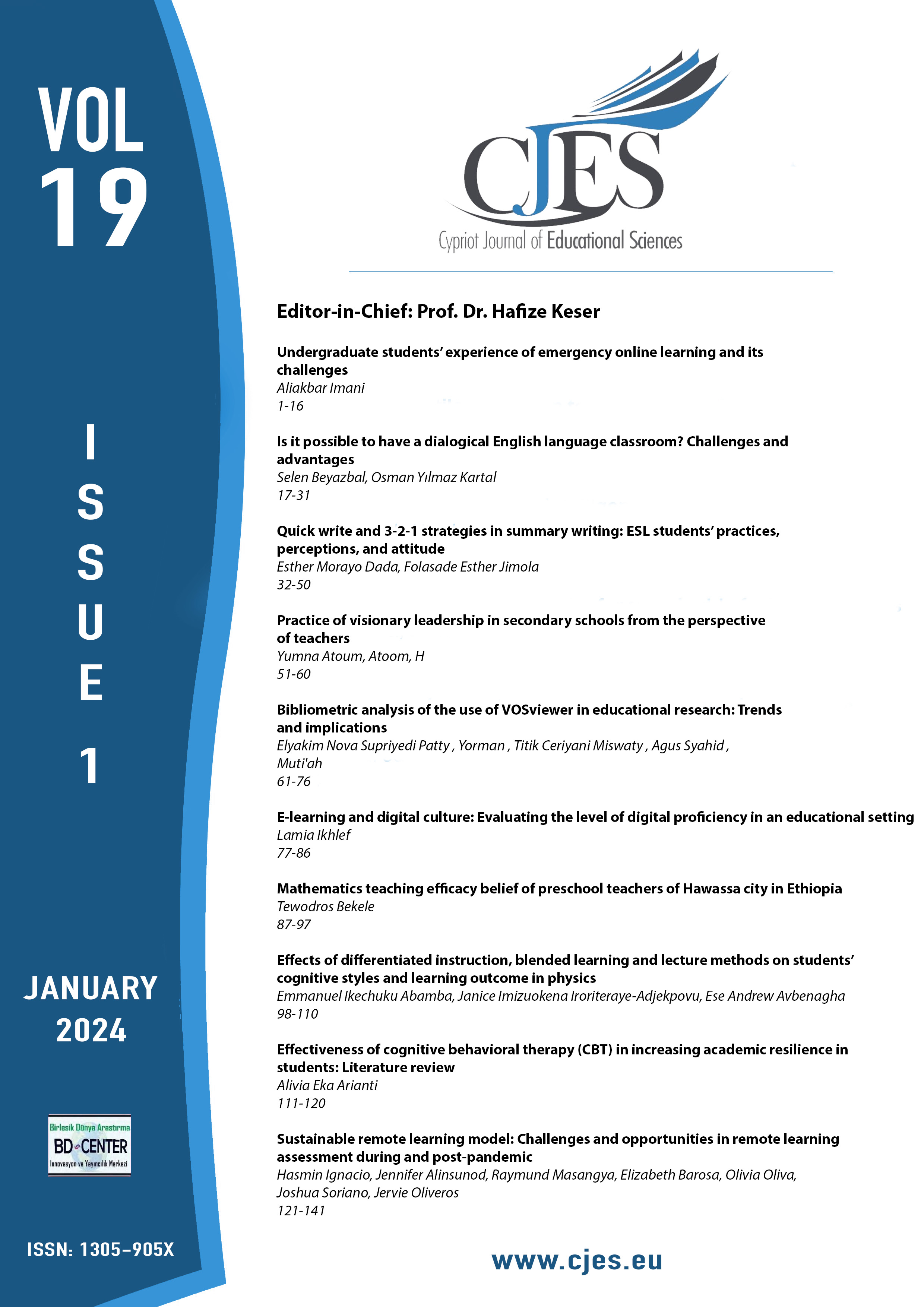Undergraduate students’ experience of emergency online learning and its challenges
Main Article Content
Abstract
One consequence of the COVID-19 pandemic was emergency online learning leading to extensive research worldwide to identify its challenges from the perspective of students. However, there is still room for a more in-depth analytical framework to understand how the students felt about and perceived it. Drawing upon Lakoff and Johnson’s Conceptual Metaphor theory, this paper explores the ‘metaphorical representation’ of a group of undergraduate students’ experiences at a Malaysian university via a semi-structured interview. There were 57 participants. The obtained data were analyzed both qualitatively and quantitatively using Braun & Clarke’s thematic analysis as well as MAXQDA Software. The findings reveal five main challenges due to the five changes brought about by emergency online learning in terms of ‘learning environment, class assignments, interaction, information delivery, and lecturer/student role’. Finally, this paper ends with suggestions to address the identified challenges as well as making recommendations for future research.
Keywords: Adult learning; COVID-19; metaphor analysis; online learning; remote teaching.
Downloads
Article Details

This work is licensed under a Creative Commons Attribution 4.0 International License.
Cypriot Journal of Educational Sciences is an Open Access Journal. The copyright holder is the author/s. Licensee Birlesik Dunya Yenilik Arastirma ve Yayincilik Merkezi, North Nicosia, Cyprus. All articles can be downloaded free of charge. Articles published in the Journal are Open-Access articles distributed under a CC-BY license [Attribution 4.0 International (CC BY 4.0)].
Birlesik Dunya Yenilik Arastirma ve Yayincilik Merkezi (BD-Center)is a gold open-access publisher. At the point of publication, all articles from our portfolio of journals are immediately and permanently accessible online free of charge. BD-Center articles are published under the CC-BY license [Attribution 4.0 International (CC BY 4.0)], which permits unrestricted use, distribution, and reproduction in any medium, provided the original authors and the source are credited.

